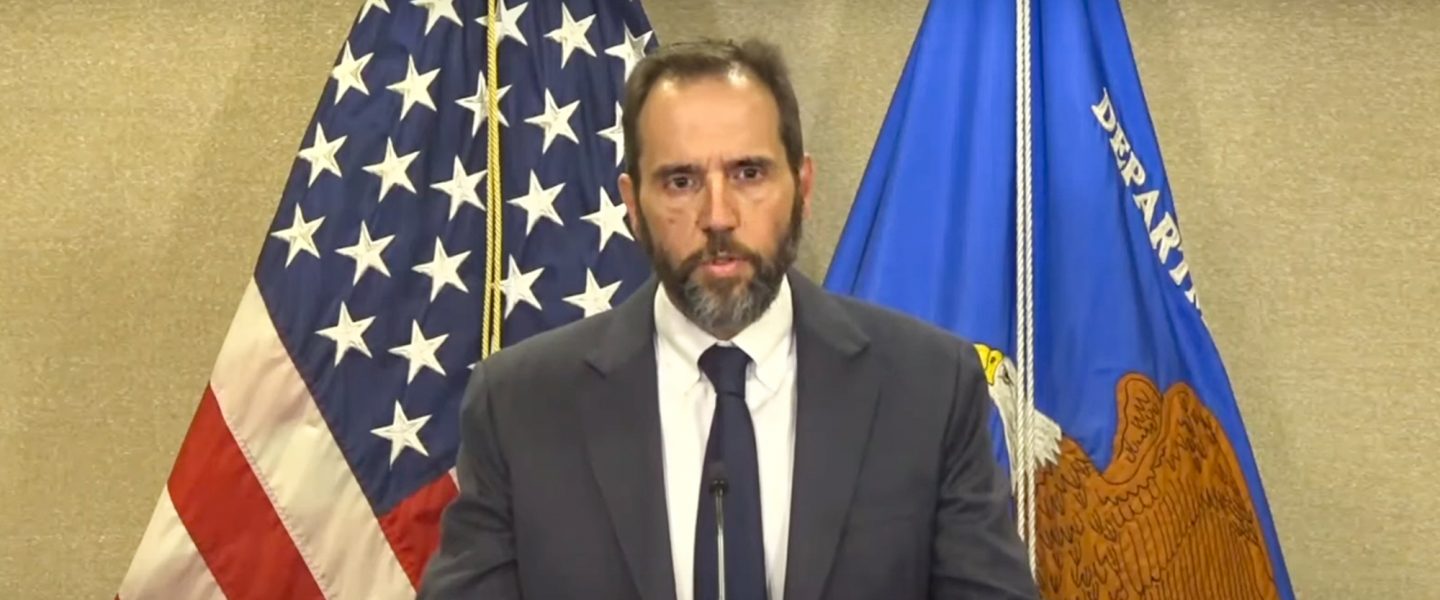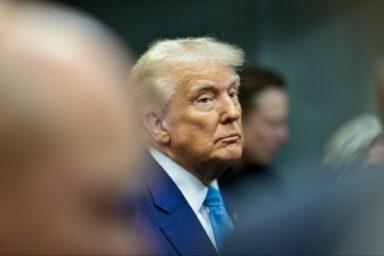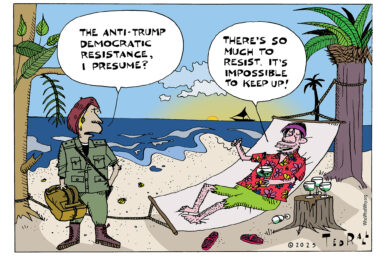Pointing to Donald Trump’s tendency to try to use intimidation to affect court proceedings, special counsel Jack Smith’s team asked the judge presiding over the former president’s DC coup case to take steps to protect jurors.
|
Listen To This Story
|
Special counsel Jack Smith on Tuesday asked the judge overseeing Donald Trump’s federal coup trial to put in place measures to protect potential jurors from the former president and his supporters.
In a court filing, the special counsel’s office pointed not only to the high profile of the case and the defendant, but also to Trump’s penchant for trying to influence court proceedings in his public speeches and social media posts.
“Trial in this matter — in which the defendant, a former president, is charged with attempting to overturn the presidential election, disenfranchise millions of Americans, and obstruct the peaceful transfer of power — is a matter of national importance and will likely generate significant public attention,” Smith’s team stated.
This will also put the spotlight on the jury pool as well as the jurors who will eventually decide over Trump’s guilt or innocence, the prosecutors noted. Therefore, they should be afforded special protections to safeguard their privacy and safety.
“Given the particular sensitivities of this case, stemming both from heightened public interest and the defendant’s record of using social media to attack others, the Court should impose certain limited restrictions on the ability of the parties to conduct research on potential jurors during jury selection and trial and to use juror research,” the prosecutors wrote.
Specifically, they asked US District Court Judge Tanya Chutkan to keep both parties from making direct contact with jurors and limit their research of potential jurors to information that is publicly available.
In addition, both the defense and the prosecution should be prohibited from publicly identifying any of the (potential) jurors.
“There are other good reasons in this case for the Court to impose these restrictions and enforce this District’s standard prohibition against publicizing jurors’ identities,” Smith’s team notes. “Chief among them is the defendant’s continued use of social media as a weapon of intimidation in court proceedings.”
To bolster their case, they pointed to Trump’s ongoing civil fraud trial in New York, in which the judge was forced to impose a limited gag order on the former president after he had launched a (false) social media attack on the judge’s top clerk.
“Given that the defendant — after apparently reviewing opposition research on court staff — chose to use social media to publicly attack a court staffer, there is cause for concern about what he may do with social media research on potential jurors in this case,” they wrote.
In addition, the prosecutors also noted that Chutkan herself had received threats from Trump supporters already, as did members of a grand jury in Georgia that had voted to indict the former president for trying to overturn the Peach State’s 2020 election.
As a results of Trump’s actions, Chutkan is currently also weighing a separate motion to impose a gag order on the former president in the DC case.




